
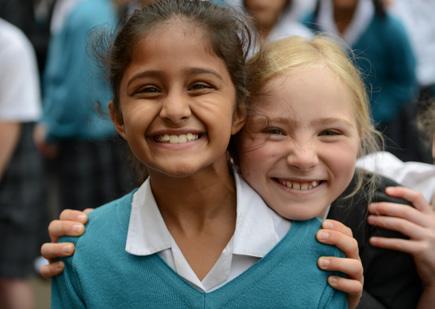
THE IB PRIMARY YEARS PROGRAMME AT BGS

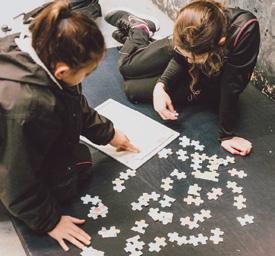






Our students soar; they are the creative thinkers, the change-makers and the problem-solvers of the future.
At Bedford Girls’ School, we believe in providing an education which will prepare our pupils for the uncertain globalised world in which they are growing up. We believe that the International Baccalaureate (IB) philosophy delivers a future inspired education that will best prepare our children as they become global citizens in the 21st Century. In the Junior School, we are proud to deliver teaching and learning through the dedicated IB Primary Years Programme (IB PYP).
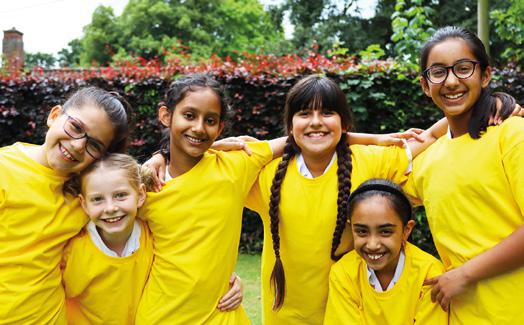
The IB PYP mirrors our fundamental belief that an education should place the child truly at the centre of learning. It must ensure pupils grow into confident, enthusiastic and independent learners, who use their skills and attributes in the pursuit of personal knowledge, global understanding and meaningful actions; and that they learn in an enjoyable, creative environment.
The IB PYP is an authentic inquiry-based learning and teaching programme that is engaging, significant, challenging and relevant. The programme creates great synergy across the School as we embrace a single philosophical approach to our education and offer the IB Diploma Programme to our older students in the Sixth Form.
Bedford Girls’ School obtained IB PYP status in 2021 after completing a rigorous two-year candidacy programme.
IB PYP Approach to Learning
The IB PYP is concept-driven, transdisciplinary, and inquiry-led.
In transdisciplinary learning, pupils learn beyond the subject boundaries to solve real problems. They do this through the discovery of knowledge, conceptual understanding, taking action and developing approaches and skills for learning whilst allowing their own personal qualities to evolve.
The IB PYP is all about inquiry; the process through which a pupil moves from their current level of understanding to a new and deeper level.
While they are learning, our pupils are:
• Exploring, wondering and questioning
• Collecting data and reporting findings
• Taking and defending a position
• Using critical thinking skills to understand a concept
• Making and testing theories
• Experimenting and playing with possibilities
• Solving problems in a variety of ways
Using inquiry-based learning, the IB PYP is able to engage and challenge pupils who have many diverse perspectives, values, cultural backgrounds, and languages.
The IB PYP framework reaches far beyond intellectual development and academic success; it addresses pupils’ academic, social and emotional well-being. Every pupil is set a personal pathway towards success.
Transdisciplinary Themes
These are broad themes addressing real world problems that help pupils better understand the world and humanity, without being confined to traditional subject boundaries.
Subjects are an important aspect of learning and gaining knowledge but in IB PYP the inter-connectedness of subjects is explored. In transdisciplinary learning, pupils are less focused on finding the "correct" answer but more on making sense of a changing world through collaboration and connections.
Learning takes place through a carefully planned Unit of Inquiry, which sits under the umbrella of the half-termly transdisciplinary theme. Across the year there is equal coverage of subjects such as the Sciences, the Humanities, the Arts and Personal, Social and Physical Education. The transdisciplinary themes are of global significance and provide pupils with the opportunity to make real-world links and to study areas of personal interest as they move through the Junior School. Each year themes are revisited to build upon depth of knowledge and develop new understanding.
The six transdisciplinary themes are:
• Who We Are
• Where We Are in Place and Time
• How We Express Ourselves

• How the World Works
• How We Organise Ourselves
• Sharing the Planet
The Five Elements of Learning
There are five elements of learning in IB PYP which are all key components in the delivery of the programme. The elements are carefully balanced across the learning cycles.
1.KNOWLEDGE
Pupils in the IB PYP explore six subject knowledge areas: Language; Mathematics; Science; the Humanities; the Arts; and Physical, Social and Personal education.
When planning each Unit of Inquiry, teachers consider subjects in relationship to each other and how these subjects connect to the theme, rather than isolating subjects into disconnected subject lessons. Teachers plan each unit and individual lessons using guidance from the International Baccalaureate’s Scope and Sequence documentation.
2.KEY CONCEPTS
Each Unit of Inquiry focuses on two to three key concepts in order to add depth and rigour to the way our pupils think. Concepts help to:
• Explore the essence of a subject
• Add coherence to the curriculum
• Deepen disciplinary understanding
• Build the capacity to engage with complex ideas
• Build understandings across, between and beyond subjects
• Integrate and transfer learning to new contexts
3.APPROACHES TO LEARNING
The IB PYP has identified five categories of interrelated skills. These are called Approaches to Learning. The five interrelated skills support pupils throughout their educational journey. They are the skills our pupils need for life-long learning and aim to support pupils of all ages to become self-regulated learners. The Approaches to Learning support pupils to know how to ask good questions and set effective goals to pursue their aspirations.
4.THE LEARNER PROFILE
5.ACTION
to the IB PYP
of
challenging pupils to show
taking individual and collective action,
take action
understand
and
The five skills are: • Thinking skills • Research skills • Communication skills • Social skills • Self-management skills
The International Baccalaureate Learner Profile describes ten attributes which nurture active, compassionate and life-long learners. Pupils throughout all phases of the School use the IB Learner Profile to help them become learners who are:
Central
philosophy is
understanding
their learning through taking action. In
pupils come to
the responsibilities associated with being internationally minded
to appreciate the benefits of working with others for a shared purpose. Pupils are encouraged to
through: • Participation • Advocacy • Social justice • Social entrepreneurship • Lifestyle choices • Inquirers • Principled • Knowledgeable • Open-minded • Risk-takers • Thinkers • Communicators • Balanced • Reflective • Caring
How are pupils taught in the Junior School ?
In the Junior School, teaching is primarily delivered by the class teacher, with all aspects of the curriculum taught through the IB PYP.
English Language and Mathematics are taught in daily lessons by Junior School class teachers who are experts in the early acquisition of these subjects. Developing a strong set of skills in literacy and numeracy are vital for unlocking potential across all subject areas. These lessons are linked to each Unit of Inquiry through developing conceptual understanding, approaches to learning and the learner attributes.
Additionally, the language experience is enhanced with specialist Spanish lessons from Years 3-5; this is extended in Year 6 with the introduction of German, French and Latin.
Specialist teachers also teach PE and pupils participate a wide range of sports on rotation across each term.
Throughout Years 3-5 students enjoy specialist Music and Dance lessons.
In Year 6, Science, Drama and DT are taught by Senior School subject specialists as part of the transition to the Senior School.
Assessment and Tracking through the IB PYP
Within the IB PYP teaching cycle a summative assessed piece of work is planned for the end of each Unit of Inquiry. This work is assessed against rubrics as outlined in the IB PYP’s framework and against success criteria agreed by the teacher and pupil. Teachers discuss feedback with pupils individually before pupils write their own reflections, building on term-by-term progress.
Pupils are assessed in Mathematics and English every term. Assessment weeks in the Junior School take the form of Evidence Weeks and are held close to the half-term breaks. Assessments take place in lesson time but pupils must work independently. At the end of the assessment week, the teachers look at a range of evidence, both ongoing classwork and test results, in order to establish the level achieved, as each pupil moves along their own individual progress path.

In 2020, the excellent educational outcomes of the Junior School pupils were endorsed by the Independent Schools Inspectorate report, with many of their comments relating directly to the impact of the IB PYP philosophy on pupils’ learning.

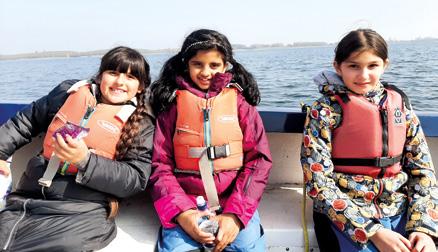


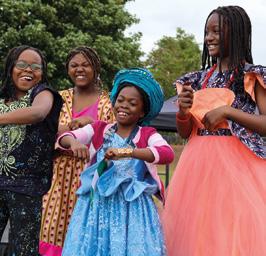



“Pupils develop excellent skills for learning from an early age, including the ability to synthesise and analyse complex information from a wide variety of sources.”
“Pupils make rapid progress in developing knowledge, skills and understanding as a result of the high expectations and effectively prepared teaching. They explore ideas in depth and make excellent use of concepts acquired in previous lessons.”
“From the youngest years, pupils apply thinking skills effectively and with confidence. They are encouraged to extend their understanding through open questions and with tasks where they can test their hypotheses.”
The International Baccalaureate
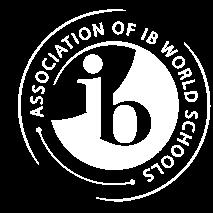
Established
4,000 schools,
Baccalaureate is a
teachers and a million
of
by the

Cardington Road, Bedford, MK42 0BX Telephone: 01234 361900 www.bedfordgirlsschool.co.uk Carbon balanced print is produced by a carbon balanced printer on carbon balanced paper.
in 1968 the International
not-for-profit foundation with headquarters in Switzerland. Over
approximately 75,000
students a year make up the IB global community
learners. All accredited schools must be authorised
IB.























